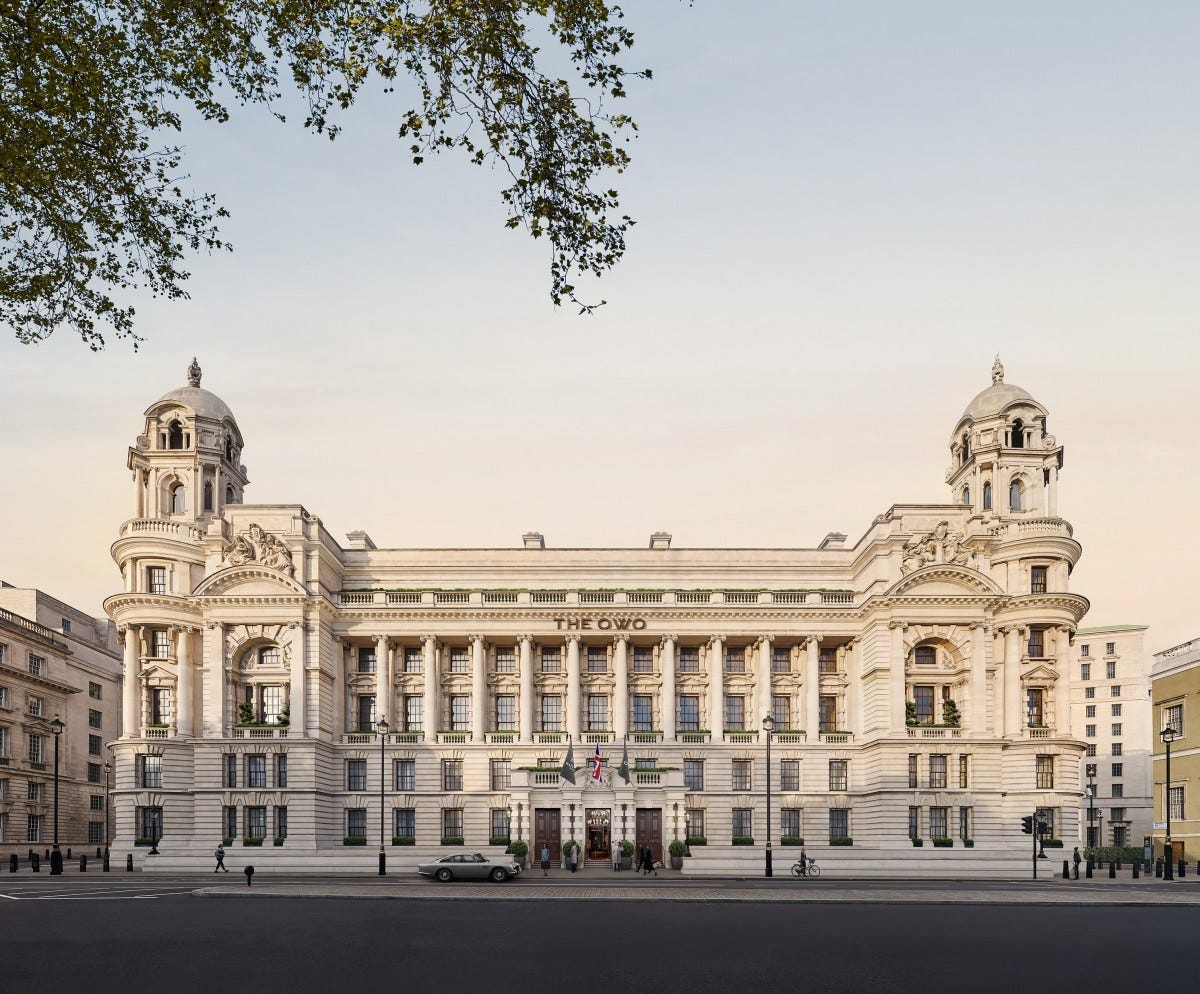Watching the political mayhem in the U.S. from London this fall, it is reassuring that after years of disarray Great Britain’s politics are returning to more normal rhythms. So, it actually can happen.
Labour friends insist that the Conservatives are still in thrall to the far right, who led the UK out of the European Union. Tories contend that Labour, having veered to the far left, may now be less extreme but is still intent on radical policy changes when it returns to a majority.
The consensus, however, seems to be for less tumult than in the past decade or so when Britain left the EU, had five Conservative prime ministers in six years, and the Labour Party leader Jeremy Corbyn was deemed both a Stalinist and an anti-Semite.
The current British prime minister is Rishi Sunak, a Tory of Indian heritage, educated in the United States, married to the daughter of an Indian billionaire, and measured in voice, tone, and, as it happens, physical stature.
The Labour leader, whose party is way ahead in the polls for next year’s general election, is Sir Keir Starmer, whose knighthood suggests that whatever his politics he was content to be tapped on the shoulders by a royal sword,
My observation of British politics began in the mid-1960s period called “Swinging London.” That era is on display (with a twenty-first-century gloss of grimness on the tinsel) in a play called Close-Up: The Twiggy Musical, featuring the exploitation of her and celebrating feminist endurance in a mix of song and dance.
In 1983, I covered the election campaign in which the scholarly Michael Foot, the Labour Party leader, was anti-nuclear and had not been to the United States since 1953 and opposed Prime Minister Margaret Thatcher, the most formidable British public figure since Winston Churchill. Foot lost.
And yet, in the 1990s Tony Blair came along and restored Labour and had more in common with Bill Clinton (smooth eloquence and devotion to fame and fortune but as far we know less lust) after Foot and before Corbyn. The pendulum does tend to swing.
Then there is Boris Johnson, who emerged from the Brexit circus to become a Tory prime minister – colorful, flamboyant, and eventually sanctioned for misbehavior in 10 Downing Street during the Covid lockdown. His blonde hair was as deliberately tousled as Donald Trump’s intricate design was meant to cover the scalp beneath.
Probably the best book on the past decade of British politics is Rory Stewart’s Politics On The Edge. The bestselling author of a book about walking across Afghanistan, he won a seat in Parliament for a time and now plays the whole experience for laughs. Think Monty Python in Westminster.
It is worth noting that from all sides, the people we saw in London accept — and some revel — in the fact that the United Kingdom, which once ruled a quarter of the world, is now a mid-size nation off the coast of Europe, albeit with nukes and a Security Council veto. Meghan, Harry, and Andrew are all muted. King Charles III and Queen Camilla are in their seventies, adultery in the past now forgiven. The late Queen Elizabeth II and Prince Philip are now held in permanent reverence.
For now, the titillating royal scandals are done and done.
**********************
One feature of London in 2023 is the contest for superluxury hotel rooms. The ADR – the Average Daily Roomrate – has never been higher. The OWO – the old British imperial war offices – is now a Raffles branded hotel owned by an Indian conglomerate (colonials’ revenge) where rooms start at £1,100 a night, including a continental breakfast. A caviar tasting for two costs £1,500. You can rest your head in the Churchill Suite, formerly the PM’s wartime office.
In a vast underground ballroom, preparations were underway for what was clearly going to be a wedding of extravagance. I asked the manager who was showing us around who the couple might be. For the only time this happened (and just days after the horrific Hamas attacks), his aplomb dissolved. “Israelis,” he said. I left it there.
Soon there will be a Peninsula starting at £1,200 a night, a second Mandarin, along with the longstanding Ritz, Connaught, and Savoy. I asked a friend in the ownership of Brown’s, a great older hotel on Dover Street (rates start in the middle three figures a night) how it could compete. “Intimacy and warmth” are the strategy.
Whatever else The OWO may provide, “warmth and intimacy” are not the main features on offer.
(For the record, my wife and I stay with close family friends in a house off the Fulham Road.)
I had wrapped up my survey of expensive hotel rooms when I came upon this article in the Financial Times: “Revolving sofas, a 100-inch TV and 75 Damien Hirsts: Inside London’s most expensive hotel suite.” (paywall) This is at Claridge’s. A hotel spokesperson said that while it is priced on a case-by-case basis, it is currently going for about £60,000 a night. Leonardo DiCaprio had checked in the week before.
My conclusion about the United Kingdom these days, whether the people there like it or not, is that it is a country better off than it may realize, especially when compared to the acute embarrassment that is the American scene at the moment.




